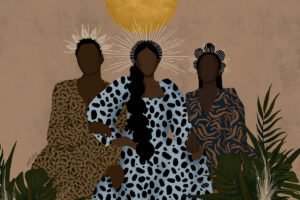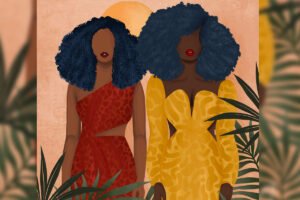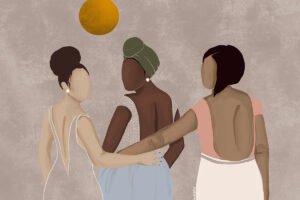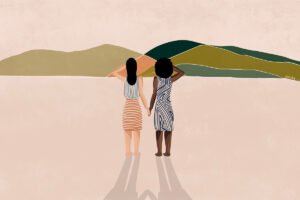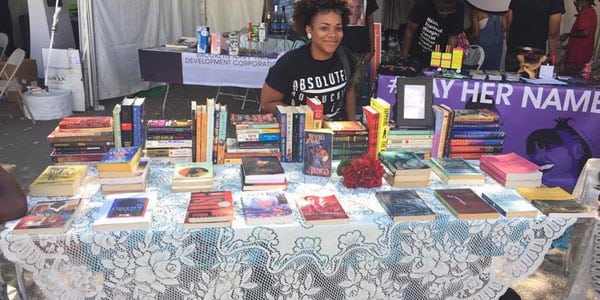
September 20, 2018; Hyperallergic
OlaRonke Akinmowo loves books. She is an artist, a scholar, and a librarian. Also, she is a Black woman, and a feminist. She has managed to weave together her passions and her knowledge to create a “mobile and interactive installation” that is part library, part art project and part social action. The Free Black Women’s Library (TFBWL) made a pop-up appearance last weekend at the NY Art Book Fair. Each month, Akinmowo packs up the 1,000 or so books by Black women authors that she has collected and takes them out into the community to spark conversations and celebrate this particular branch of literature.
In an interview with Hyperallergic, Akinmowo explains how TFBWL came to be:
I wanted to do a social art project where books were the theme, and I also wanted to do something that centered Black women and explored the idea of how Black women are so different, and how Black women are so creative, and imaginative, and talented, and diverse. I had gotten frustrated with seeing news stories on Black women that were coming from a pessimistic viewpoint, and a very sad viewpoint. I wanted to do something that explored our realities from a different standpoint: a place where we’re more empowered, and where it’s not people talking about us, but it’s us talking about ourselves. Where the voice is our voice.
Sign up for our free newsletters
Subscribe to NPQ's newsletters to have our top stories delivered directly to your inbox.
By signing up, you agree to our privacy policy and terms of use, and to receive messages from NPQ and our partners.
When Akinmowo first started her pop-up installations, she had only about 100 books in the collection, so visitors could only take a book (or two) if they brought a book (or two) to trade. The traded books all had to be written by Black women, of course. And while those trades are still welcome, the collection is large enough now that she can give books away to people who don’t have a trade to offer. The pop-up library is installed in a different public location each month—usually in Brooklyn or around New York City, but as noted on the TFBWL website, the social art project has also travelled to Detroit, Chicago, Philadelphia, and Baltimore. (Akinmowo is trying to raise money for a vehicle that can serve as a bookmobile, which would facilitate storage and transportation of the collection.)
Akinmowo accepts book donations as well as making trades. Authors who hear about TFBWL sometimes send her copies of their books to be sure their titles are represented in the collection. Akinmowo works hard to ensure the collection is cross-generational as well as cross-genre, so there is something for everyone. She would love to have more books by Black women from outside the US, “because I definitely want to stress that Blackness is global.”
Some visitors to TFBWL engage with Akinmowo by discussing their favorite books in the library or by asking her for recommendations. But the beauty of this traveling book collection—and what makes it not only a pop-up library but also a social art project—is that every time it makes an appearance, it does far more than share books with readers. Everywhere it goes, TFBWL bears witness to the variety and the depth of Black female voices, and it highlights Black women as a force that fills a great deal of shelf space in the literary world.—Eileen Cunniffe




